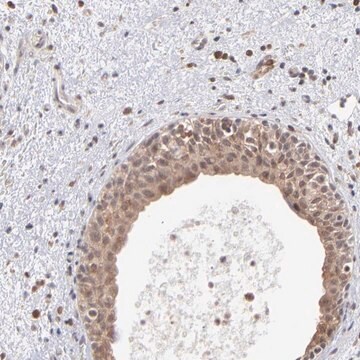MABC943
Anti-OAS1 Antibody, clone 1D11.1
clone 1D11.1, from mouse
Synonym(s):
2′-5′-oligoadenylate synthase 1, (2-5′)oligo(A) synthase 1, 2-5A synthase 1, E18/E16, p46/p42 OAS
About This Item
Recommended Products
biological source
mouse
Quality Level
antibody form
purified antibody
antibody product type
primary antibodies
clone
1D11.1, monoclonal
species reactivity
human
technique(s)
western blot: suitable
isotype
IgG2aκ
NCBI accession no.
UniProt accession no.
target post-translational modification
unmodified
Gene Information
human ... OAS1(4938)
General description
Specificity
Immunogen
Application
Apoptosis & Cancer
RNA Metabolism & Binding Proteins
Quality
Western Blotting Analysis: A 1:500 dilution of this antibody detected OAS1 in 10 µg of lysate from IFN gamma-treated HeLa cells.
Target description
Physical form
Storage and Stability
Other Notes
Disclaimer
Not finding the right product?
Try our Product Selector Tool.
Storage Class
12 - Non Combustible Liquids
wgk_germany
WGK 1
flash_point_f
Not applicable
flash_point_c
Not applicable
Certificates of Analysis (COA)
Search for Certificates of Analysis (COA) by entering the products Lot/Batch Number. Lot and Batch Numbers can be found on a product’s label following the words ‘Lot’ or ‘Batch’.
Already Own This Product?
Find documentation for the products that you have recently purchased in the Document Library.
Our team of scientists has experience in all areas of research including Life Science, Material Science, Chemical Synthesis, Chromatography, Analytical and many others.
Contact Technical Service







